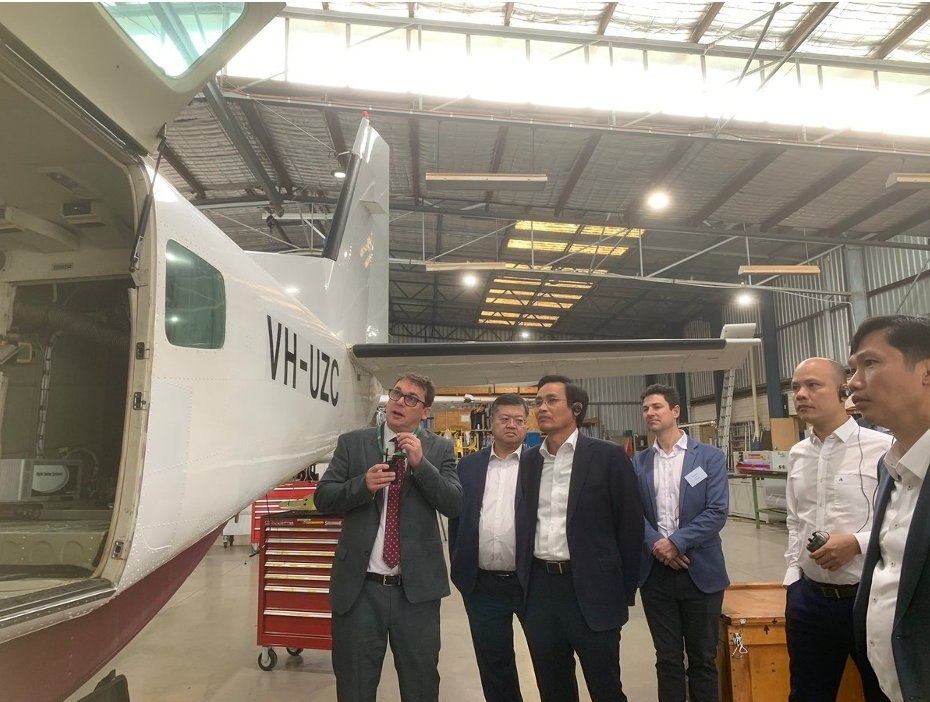Vietnam–Australia cooperation to enhance rare mineral management
G+ ( en.mae.gov.vn/vietnamaustralia-cooperation-to-enhance-rare-mineral-management-8971.htm)
From August 10–16, 2025, a delegation of Vietnam’s Ministry of Agriculture and Environment (MAE), led by Deputy Minister Tran Quy Kien, visited several Australian cities to study the country’s experience in managing, exploiting, and processing strategic minerals.
The program was coordinated by the Australian Department of Foreign Affairs and Trade (DFAT), with the participation of leaders from MAE’s affiliated units, the Vietnam Institute of Geosciences and Mineral Resources, and the National Mineral Reserve Assessment Council.
The mission focused on three main objectives: strengthening the Vietnam–Australia partnership; enhancing the capacity of Vietnamese officials in policy-making, planning, and mining operations; and sharing experience in geological resource management, particularly in relation to strategic minerals.

On the first day in Western Australia, the delegation met with the Australian Trade and Investment Commission (Austrade) and Australian Strategic Materials (ASM). ASM introduced the Dubbo Project, a polymetallic resource containing both light and heavy rare earths, as well as zirconium, niobium, and hafnium. Deputy Minister Tran Quy Kien emphasized that Vietnam regards Australia as a “trusted strategic partner” and expressed the wish for ASM to share its expertise in processing ion-adsorption rare earths, the type of deposits Vietnam is currently exploring. He also encouraged ASM to consider investing in a processing plant in Vietnam based on its model in Korea, while supporting information and technology exchange.
The delegation also held talks with Xcalibur Smart Mapping, a global leader in airborne geophysics. The company presented its advanced survey technologies, which have been applied in more than 50 million kilometers of surveys worldwide. Deputy Minister Kien welcomed Xcalibur’s plan to conduct aerial surveys in the Mekong Delta - Vietnam’s largest rice and fruit-producing region, which is facing severe challenges from climate change - and underlined that a high-resolution resource map would provide an essential foundation for sustainable socio-economic development.

At the School of Minerals and Energy, University of New South Wales (UNSW), the delegation met with Professor Julien Epps. Ranked among the world’s top 20 universities in the QS 2025 Rankings, UNSW is renowned for research in climate science, sustainable urban development, and human rights. UNSW scientists introduced advanced technologies for “zero waste, zero emissions” mining, as well as emission-calculation tools to monitor and mitigate environmental impacts. These approaches are seen as key pathways for sustainable mineral development.
During the mission, the delegation also conducted field visits to mining and processing models that integrate environmental protection and post-mining rehabilitation. Such practical experiences will help Vietnam improve its policies and legislation while strengthening management capacity in the field of strategic and critical minerals.
The mission achieved several concrete outcomes: acquiring knowledge of mineral management and processing; exploring advanced technologies for sustainable mining; surveying deep-processing models; and expanding cooperation with Australian enterprises and research institutions. These results open important opportunities for technology transfer, investment, and long-term collaboration.
On behalf of the Ministry’s leadership, the delegation expressed gratitude to the Australian Embassy in Vietnam, Ernst & Young Australia, Ernst & Young Vietnam, and other organizations for their coordination and support.
The success of the mission is not only technical but also contributes to reinforcing the Vietnam–Australia Comprehensive Strategic Partnership, particularly in geology and minerals—an area that plays a vital role in sustainable development and resource security for both nations.
Phuong Linh